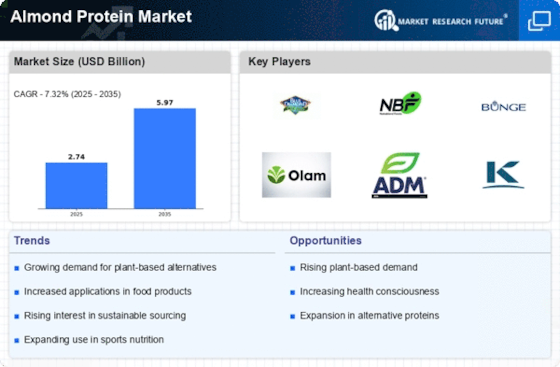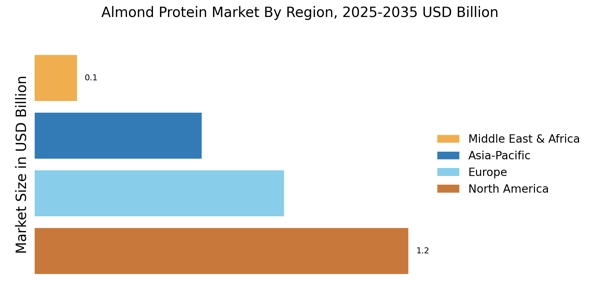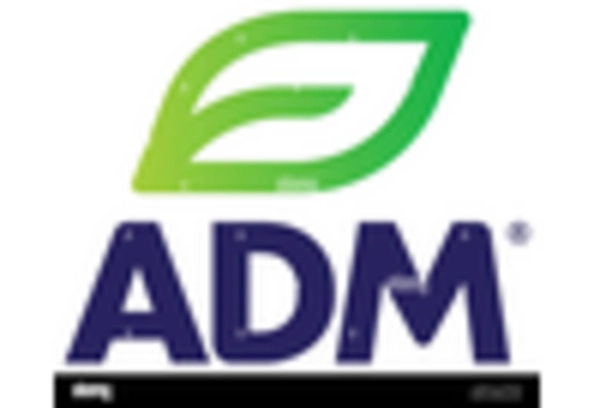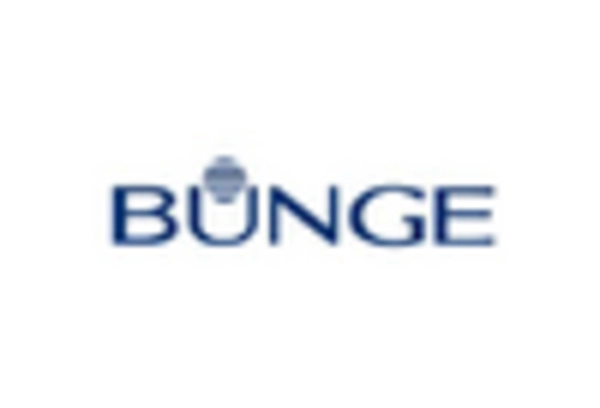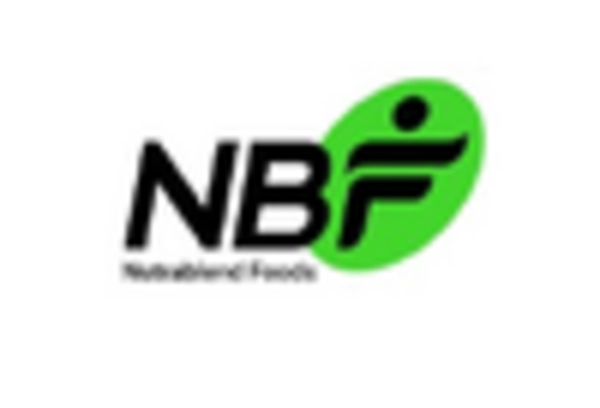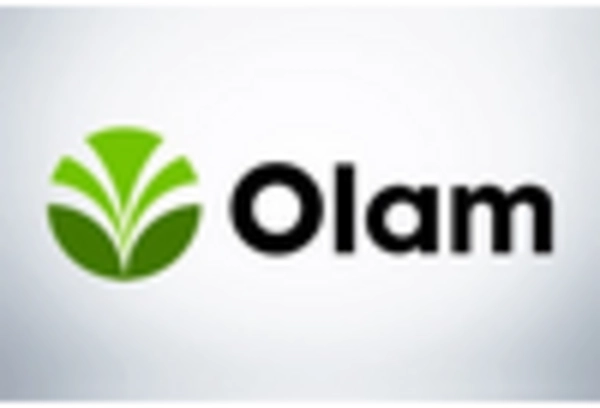Rising Popularity of Vegan Diets
The increasing adoption of vegan diets is a notable driver for the almond protein Market. As consumers become more health-conscious and environmentally aware, the shift towards plant-based diets is gaining momentum. Almond protein, being a rich source of essential amino acids, aligns well with the nutritional needs of vegans. According to recent data, the plant-based protein segment is projected to grow at a compound annual growth rate of over 10% in the coming years. This trend suggests that almond protein products will likely see heightened demand as they cater to the dietary preferences of a growing vegan population. The Almond Protein Market stands to benefit significantly from this shift, as more consumers seek alternatives to animal-based proteins.
Increased Awareness of Health Benefits
The rising awareness of the health benefits associated with almond protein is a critical driver for the Almond Protein Market. Almond protein is known for its high protein content, low carbohydrate levels, and beneficial fats, making it an attractive option for health-conscious consumers. Research indicates that almond protein can aid in muscle recovery and weight management, which appeals to fitness enthusiasts and those looking to improve their overall health. The market for protein supplements is expected to expand, with almond protein being a key player due to its nutritional profile. This growing awareness of health benefits is likely to propel the Almond Protein Market forward, as consumers increasingly prioritize health in their dietary choices.
Technological Advancements in Processing
Technological advancements in processing methods are playing a pivotal role in shaping the Almond Protein Market. Innovations in extraction and processing techniques have improved the efficiency and quality of almond protein production. These advancements allow for the creation of higher-quality protein powders that retain more nutrients and flavor, appealing to a broader consumer base. The market is witnessing an influx of new products that leverage these technologies, enhancing the overall appeal of almond protein. As processing technologies continue to evolve, the Almond Protein Market is expected to benefit from increased product offerings and improved consumer satisfaction, potentially leading to higher market penetration.
Sustainability and Environmental Concerns
Sustainability and environmental concerns are becoming increasingly important to consumers, driving the Almond Protein Market. Almonds are considered a more sustainable protein source compared to traditional animal proteins, as they require less water and land for production. This aspect resonates with environmentally conscious consumers who are looking to reduce their carbon footprint. The trend towards sustainable food sources is expected to continue, with almond protein positioned as a favorable alternative. As consumers prioritize sustainability in their purchasing decisions, the Almond Protein Market is likely to experience growth, as brands that emphasize eco-friendly practices gain traction in the marketplace.
Expansion of Food and Beverage Applications
The diversification of food and beverage applications is significantly influencing the Almond Protein Market. Almond protein is being incorporated into a variety of products, including protein bars, smoothies, and dairy alternatives, which enhances its market appeal. The food and beverage sector is witnessing a trend towards healthier options, and almond protein serves as a versatile ingredient that can enhance the nutritional value of many products. Market data suggests that the demand for protein-enriched foods is on the rise, with consumers seeking convenient and nutritious options. This expansion into various applications is likely to drive growth in the Almond Protein Market, as manufacturers increasingly recognize the potential of almond protein in meeting consumer demands.


